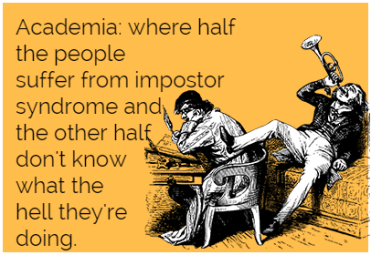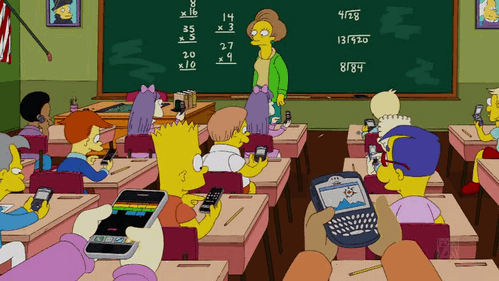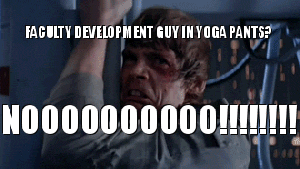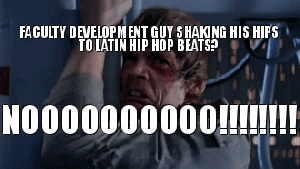
At a certain point, the Daily Affirmation of Stuart Smalley just doesn’t cut it.
Thankfully, the folks at Academic Coaching and Writing are offering a free webinar in September on just this pervasive malady:
_______________________________
Managing the Impostor Syndrome in Academia: How to Overcome Self-Doubt
Do you ever feel like you are an academic “impostor,” living with the dread that you will someday be discovered to be a fraud? Do you feel that you are not really seen for all your strengths and capabilities? Key to academic success is your ability to present yourself in a compelling manner. Howevcr, many academics are inhibited by negative self-talk that undermines the way they present their competencies. This webinar will help you to step back and assess how you present your academic capabilities and how you manage others’ impressions of your abilities.
This webinar will present some research on faculty productivity and guide you through coaching exercises to help you:
- Understand your role in the performance of being an academic
- Identify the three components of “Academic Presence:”
- Recognize how academic culture may lead to negative self-talk
- Increase self-awareness of how negative thoughts sabotage your performance
- Step into your strengths and manifest your Academic Presence
Join Moira Killoran for this webinar September 25, 2014 at:
- 1 p.m. PDT
- 2 p.m. MDT
- 3 p.m. CDT
- 4 p.m. EDT
About the Presenter
 Moira Killoran, ACW Director of Academic Coaching, is a professionally certified coach with experience in leadership, academic career and dissertation coaching, as well as in qualitative research consulting. As a consultant, she has worked extensively with faculty members, university administrators, and graduate students, assisting them to complete manuscripts, dissertations, and grant proposals. She also has worked with academics to transition out of academia and into new industries. She has been principal investigator (PI) or co-PI for a variety of studies, and has been funded by the NIH, DOD, and SSRC. Moira’s publications focus on gender and identity construction, organizational culture, substance use, and doctor-patient communication. Her faculty appointments have included positions at George Washington University and Whittier College. She received her PhD in cultural anthropology from The University of Texas at Austin, and has post-doctoral training from the University of California-Berkeley and the University of California-San Francisco in medical anthropology.
Moira Killoran, ACW Director of Academic Coaching, is a professionally certified coach with experience in leadership, academic career and dissertation coaching, as well as in qualitative research consulting. As a consultant, she has worked extensively with faculty members, university administrators, and graduate students, assisting them to complete manuscripts, dissertations, and grant proposals. She also has worked with academics to transition out of academia and into new industries. She has been principal investigator (PI) or co-PI for a variety of studies, and has been funded by the NIH, DOD, and SSRC. Moira’s publications focus on gender and identity construction, organizational culture, substance use, and doctor-patient communication. Her faculty appointments have included positions at George Washington University and Whittier College. She received her PhD in cultural anthropology from The University of Texas at Austin, and has post-doctoral training from the University of California-Berkeley and the University of California-San Francisco in medical anthropology.






 It’s not until the day of the test, as they’re confronted by a number of questions they can’t answer, that the anxiety sets in. They will sit staring at the questions and guessing at far too many answers, before turning in the test and then persuading themselves that chances are still pretty good for a B. Most students begin college, the academic year, and new courses motivated and optimistic. Many first-year students expect to do well because they were successful in high school. Some are right, but others will only find similar success if they work much harder than they did in high school. Yet most start out expending the same level of effort. They will talk with their classmates and convince each other that an exam covering three chapters can’t be that hard, so they put off studying and then “look over” the chapters the night before—happily dealing with any and all interruptions and distractions.
It’s not until the day of the test, as they’re confronted by a number of questions they can’t answer, that the anxiety sets in. They will sit staring at the questions and guessing at far too many answers, before turning in the test and then persuading themselves that chances are still pretty good for a B. Most students begin college, the academic year, and new courses motivated and optimistic. Many first-year students expect to do well because they were successful in high school. Some are right, but others will only find similar success if they work much harder than they did in high school. Yet most start out expending the same level of effort. They will talk with their classmates and convince each other that an exam covering three chapters can’t be that hard, so they put off studying and then “look over” the chapters the night before—happily dealing with any and all interruptions and distractions.




